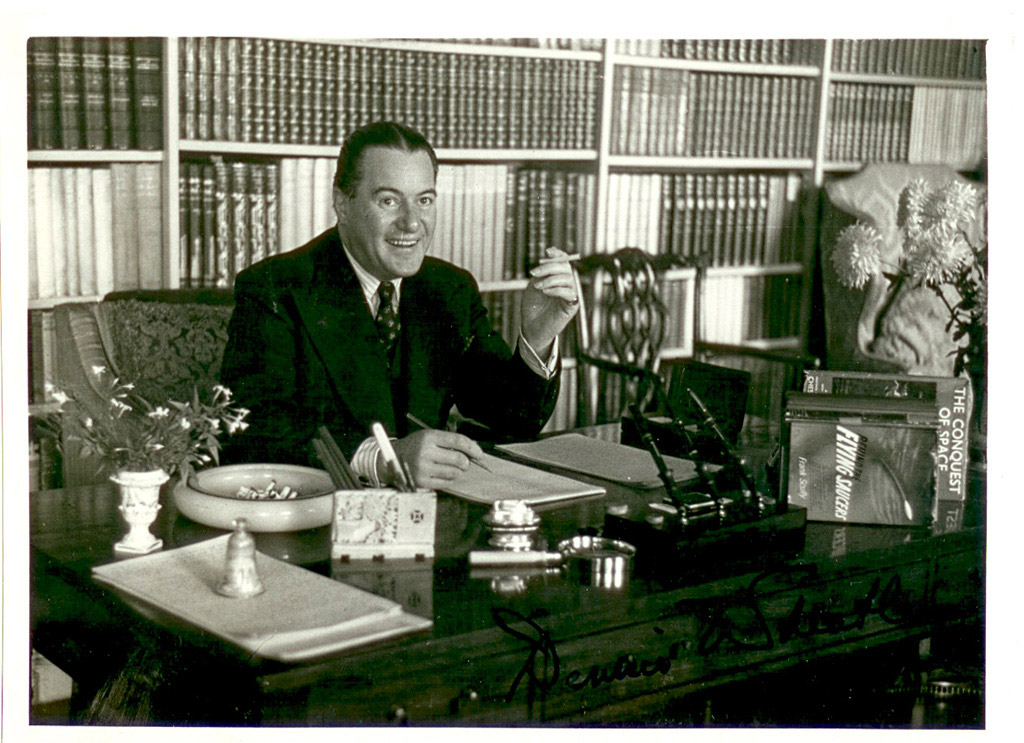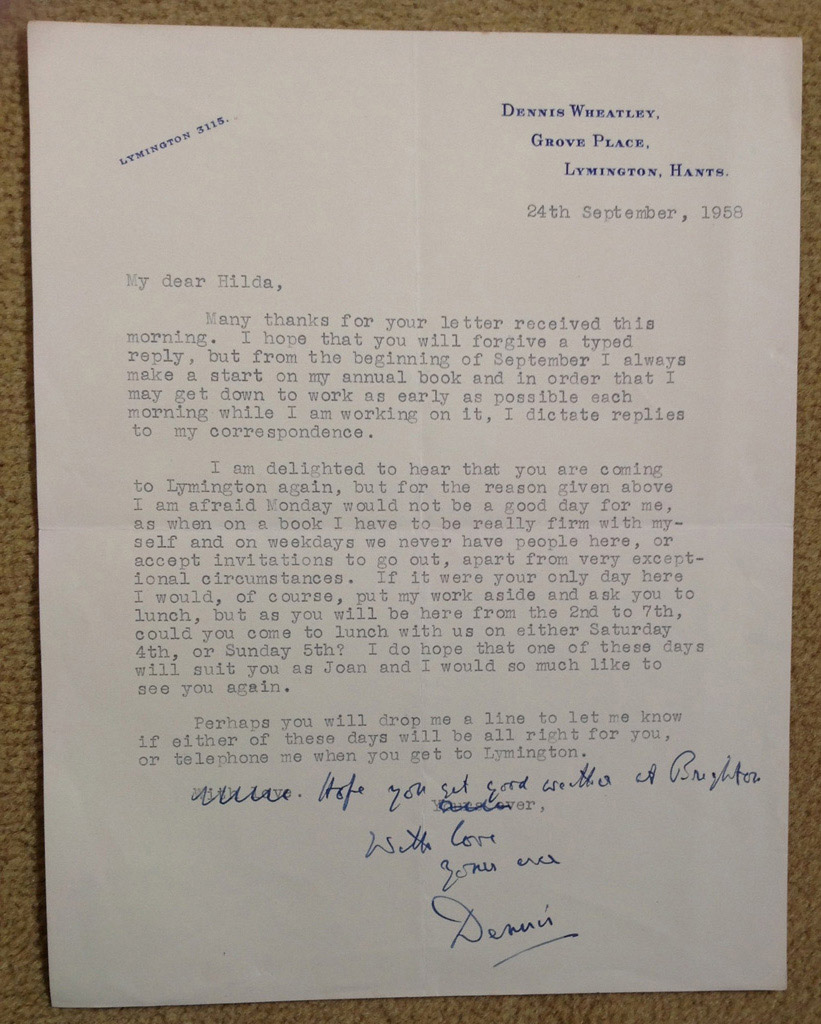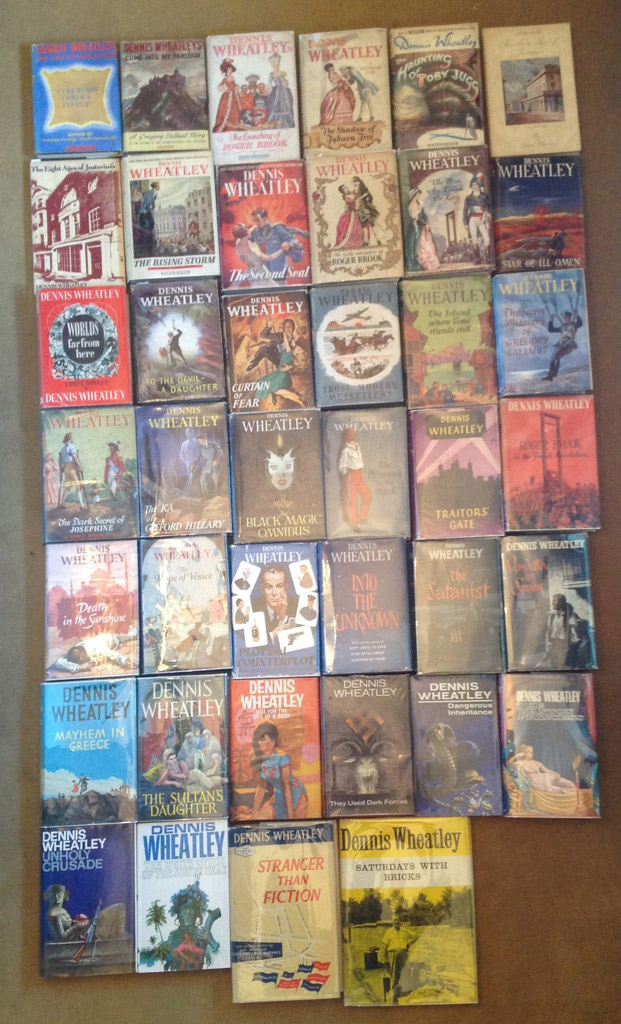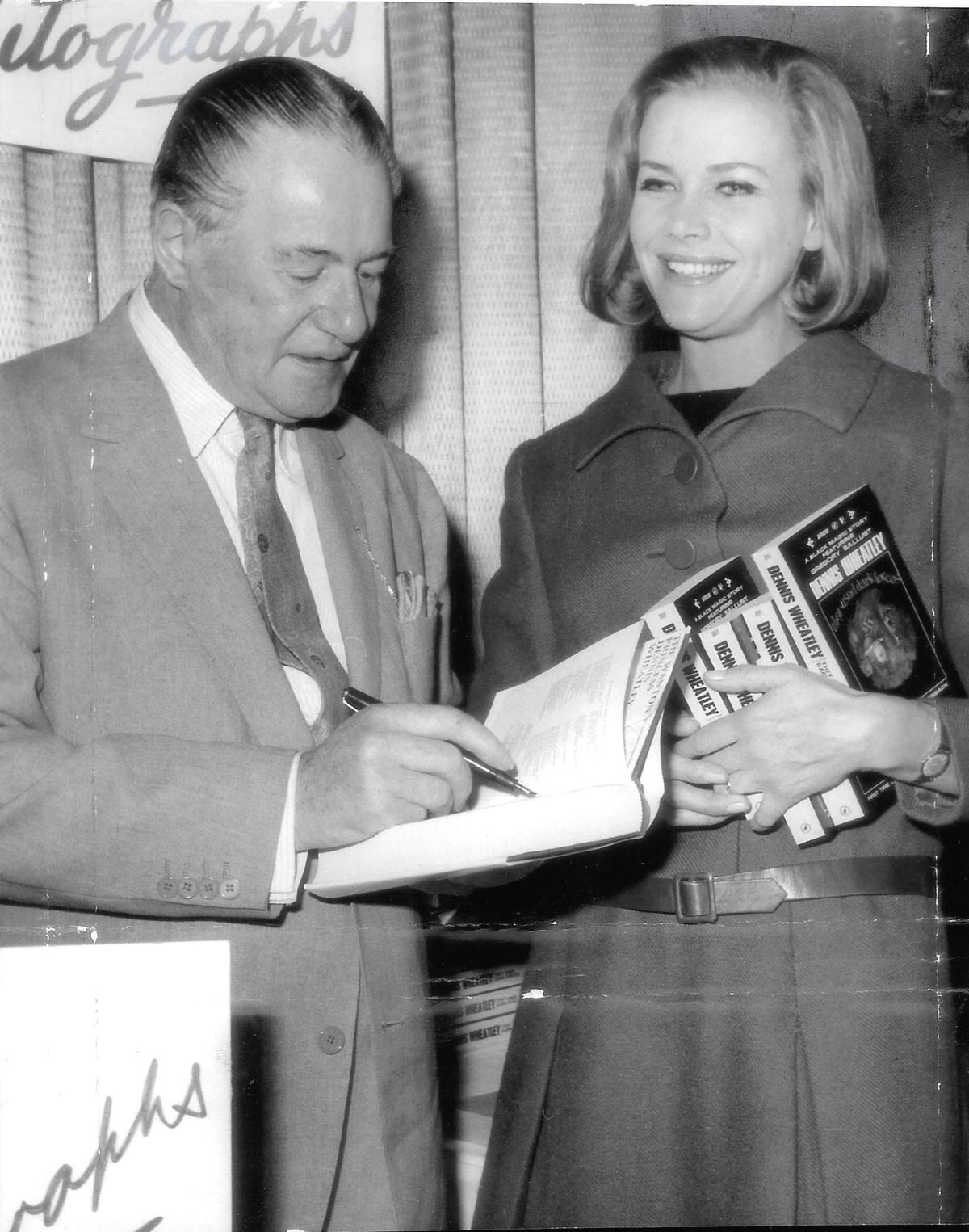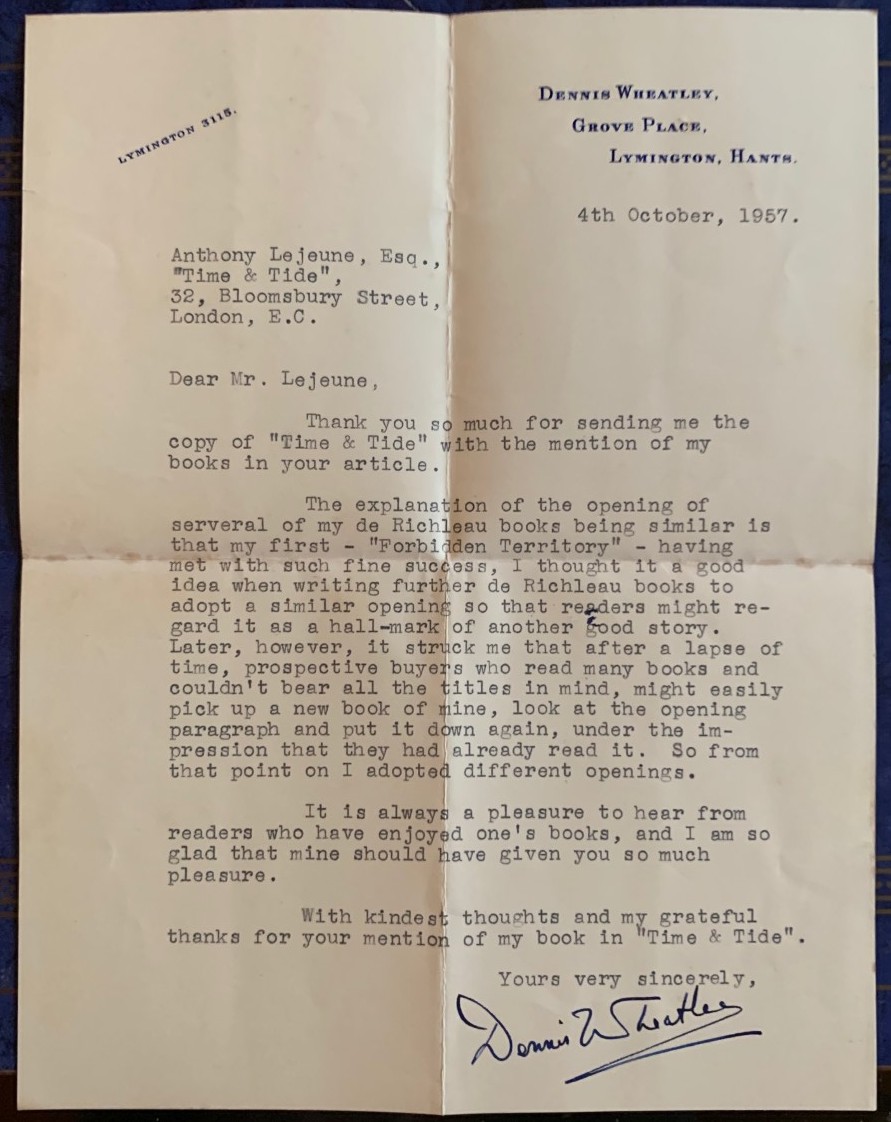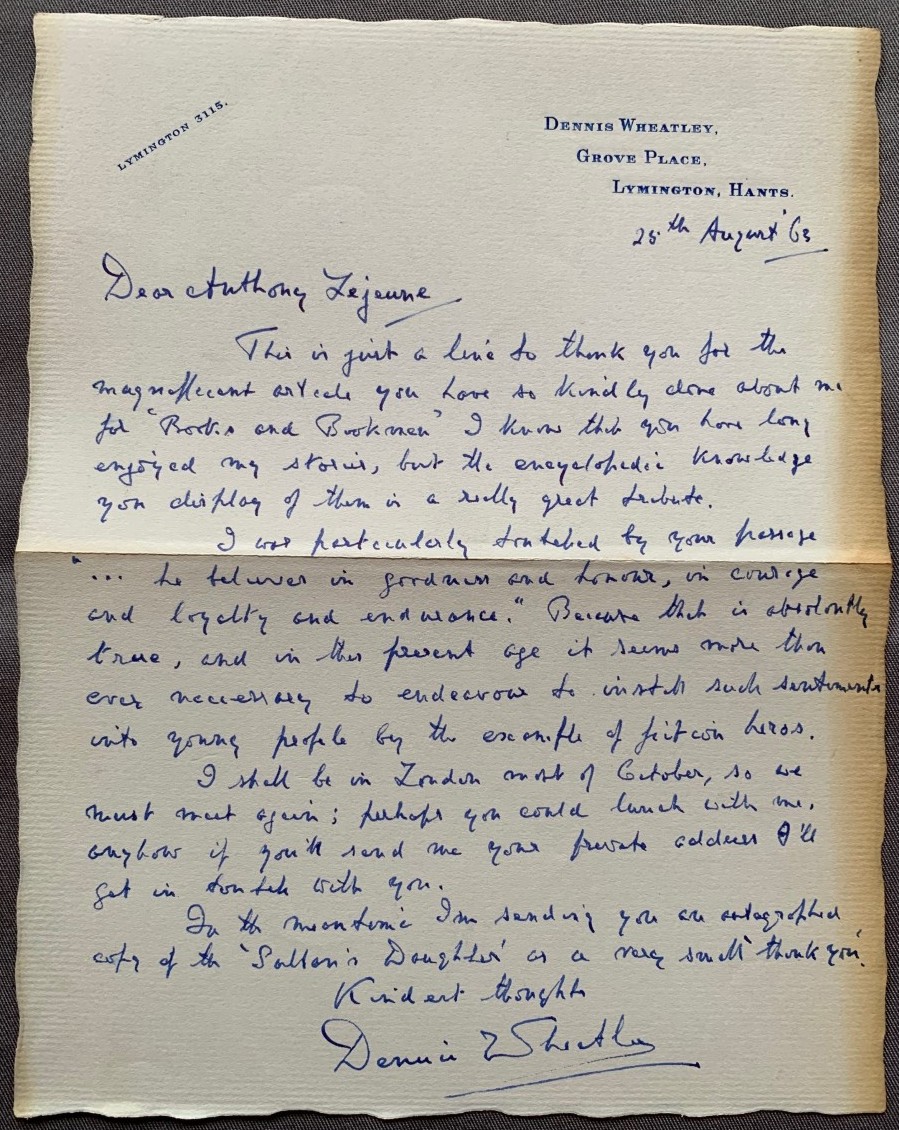DW was a disciplined writer. He would begin his day with breakfast in bed and read the papers and his large fan mail. When he got up he would attend to his correspondence – almost every fan would get a personal reply – and then resume work on the current book. He would work until lunch and then take a nap. He would then work from tea-time until dinner and then carry on writing, sometimes until well after midnight.
His year would be divided into two halves; September / October to May he would write his books, and in the summer months he would travel and relax and otherwise enjoy the fruits of his labours.
While his literary output often reached two or three books in the early days, after the War he moved gradually towards writing one book a year, often preceded – especially for the Roger Brook novels - by intensive research.
Although DW's primary motivation as a professional writer was to earn money, the final letter (to the author, journalist and critic Anthony Lejeune, who was to become a close friend, and who many decades later would edit the posthumously published volumes of DW's autobiography) shows that a further reason for writing the novels was to seek to instil in his readers a love of the virtues which he himself held dear, and which were present in abundance in his fictional heroes.
References : Phil Baker Chapter 33
‘Drink and Ink’ pp 250-253
Provenance : Private Collections
Thanks to Jim Devlin for his generosity in supplying the illustration of DW with Honor Blackman



